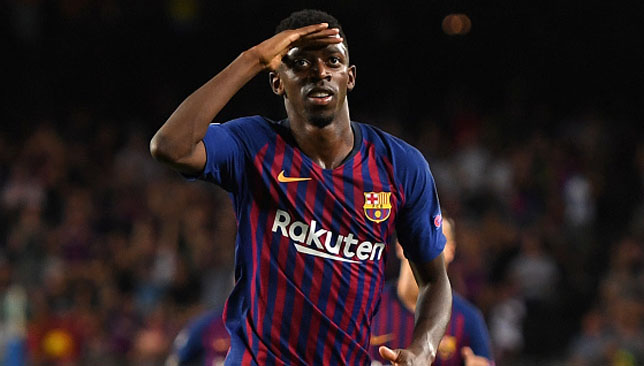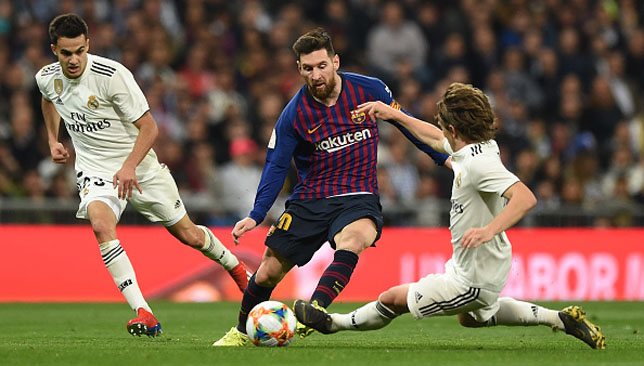
Lionel Messi, despite being probably the greatest player in the history of football, cannot do everything on his own.
That’s quite a consoling idea, reminding us that – however much we like to focus on individuals – football is a team sport and even the Greatest Of All Time can’t achieve much on his own.
It’s also true. If you don’t believe it, just look at the way Messi’s greatest triumphs came when he was the central part in a smoothly functioning collective which also allowed others to take a prominent role.
In the Champions League victories he has gained with Barcelona, for example, he received an enormous amount of help from (among many others) Thierry Henry and Samuel Eto’o in 2009, Xavi and Andres Iniesta in 2011, and Luis Suarez and Neymar in 2015.
Conversely, on the occasions where the quality of individuals or the general team structure have not been strong enough – such as Barca’s season under Tata Martino in 2013/14, the last couple of Champions League failures and with Argentina always – even the presence of Messi has not been enough to overcome those collective shortcomings.
Last season, for example, Barca were unable to withstand Roma’s spirited comeback in the second leg of the Champions League quarter-final partly, it seems, through fatigue, and partly through complacency. But partly also because they were too predictable, too reliant upon Messi to rescue them. And when he couldn’t, there was nobody else to step up.
This year’s Barca vintage, however, is a different matter, and Wednesday’s Copa del Rey victory at Real Madrid showed that one very important new element has been added to the mix. And his name is Ousmane Dembele.
Barca did not play particularly well at the Bernabeu, especially in the first half when they were repeatedly opened up by the home side. They only reached the half-time interval with the deadlock still intact thanks to a helpful combination of wayward finishing and desperate last-ditch blocks and saves, having offered next to nothing going forward.
In the same situation 12 months ago, Barca would have been forced to hope that Messi came up with something special or that a defensive mistake gifted them a goal (as happened, for example, in the Champions League last 16 first leg at Chelsea). If neither of those things happened, they probably wouldn’t have been able to overcome top-class opposition.
But 12 months ago they were unable to consistently call upon the services of Dembele, who was suffering a tough first season at the club as he struggled to find fitness after a lengthy injury absence and also needed time to adapt to the style of the team.
Now, however, Dembele has made that adaptation and he is ready to provide the missing ingredient. Wednesday’s game showed exactly why as he created the first two goals, using his pace to burst clear of the Real defence and then delivering pinpoint crosses for Luis Suarez to convert (Raphael Varane got in the way of the second to put the ball over his own line, but that hardly mattered). Suarez grabbed the headlines, but Dembele changed the game.

Messi was kept quiet by Real Madrid.
Strangely, the best thing about the victory at the Bernabeu from Barca’s point of view is that Messi had a notably quiet game, not making a direct contribution to any of his team’s three goals and failing to muster a single shot on target.
In some Barca teams, that would have made all the difference between winning and losing. But not with Dembele, because he provides something the team otherwise lacks: raw speed. The Frenchman’s velocity allows the team to launch counter-attacks, and allows him to decisively penetrate defences in a way that Messi and Suarez, for all their obvious qualities, simply cannot.
Of course, Dembele needs his teammates too, and the fact that Messi was demanding so much attention from Madrid’s backline on Wednesday night – forcing him into such a quiet game – created space for Dembele to exploit.
On other occasions, perhaps it will be the other way around, with the potential of Dembele to wreak havoc opening up more room for Messi to strut his stuff or link up with Suarez.
Whichever way it works, though, Dembele’s flourishing this season has added a new dimension to his team’s attack. As Wednesday night’s win at arch rivals Real Madrid showed, now they can win even without a decisive contribution from Messi.
That is not enough, of course, to guarantee they will finish the season as European champions. But it makes that outcome much more likely.